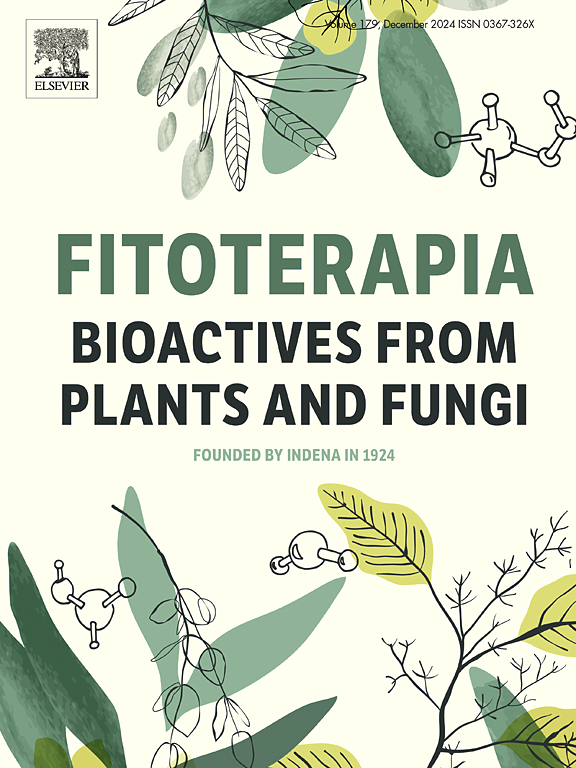Combating depression with rosemary (Rosmarinus officinalis L.)-derived polyphenols: Major phytochemicals, functional properties, and potential
IF 2.5
3区 医学
Q3 CHEMISTRY, MEDICINAL
引用次数: 0
Abstract
Depression is a common mental condition with high prevalence and recurrence rates worldwide. The active polyphenols in Rosmarinus officinalis L. contain several pharmacological activities, including anti-inflammatory, antibacterial, and neuroprotective characteristics. However, the effects of rosemary polyphenols on depression have not been thoroughly studied. The anti-inflammatory activity and regulatory effects on gut microbiota of key rosemary polyphenols, as well as their impacts on depression, are the main emphasis of this research. We conclude that the anti-depressive effects of rosemary polyphenols are due to anti-inflammatory properties and bidirectional relationship with gut microbiota, including inhibiting inflammatory pathways and cytokines (reducing pro-inflammation cytokines, suppressing NF-κB and NLRP3 inflammasomes, and upregulating Nrf2/HO-1 pathway), altering intestinal microbiota structure and metabolites (polyphenols-related microbial metabolites and biotransformation of polyphenols by microbiota). This paper provides a better understanding of the anti-depressive effects of polyphenols in Rosmarinus officinalis L.

用迷迭香(Rosmarinus officinalis L.)衍生的多酚对抗抑郁症:主要的植物化学物质、功能特性和潜力
抑郁症是一种常见的精神疾病,在世界范围内具有很高的患病率和复发率。迷迭香中的活性多酚类物质具有抗炎、抗菌、神经保护等多种药理活性。然而,迷迭香多酚对抑郁症的影响尚未得到充分研究。迷迭香多酚的抗炎活性、对肠道微生物群的调节作用以及对抑郁症的影响是本研究的重点。我们认为迷迭香多酚的抗抑郁作用是由于其抗炎特性和与肠道微生物群的双向关系,包括抑制炎症途径和细胞因子(减少促炎症细胞因子,抑制NF-κB和NLRP3炎症小体,上调Nrf2/HO-1途径),改变肠道微生物群结构和代谢产物(多酚相关的微生物代谢物和微生物群对多酚的生物转化)。本文对迷迭香中多酚类物质的抗抑郁作用有了进一步的了解。
本文章由计算机程序翻译,如有差异,请以英文原文为准。
求助全文
约1分钟内获得全文
求助全文
来源期刊

Fitoterapia
医学-药学
CiteScore
5.80
自引率
2.90%
发文量
198
审稿时长
1.5 months
期刊介绍:
Fitoterapia is a Journal dedicated to medicinal plants and to bioactive natural products of plant origin. It publishes original contributions in seven major areas:
1. Characterization of active ingredients of medicinal plants
2. Development of standardization method for bioactive plant extracts and natural products
3. Identification of bioactivity in plant extracts
4. Identification of targets and mechanism of activity of plant extracts
5. Production and genomic characterization of medicinal plants biomass
6. Chemistry and biochemistry of bioactive natural products of plant origin
7. Critical reviews of the historical, clinical and legal status of medicinal plants, and accounts on topical issues.
 求助内容:
求助内容: 应助结果提醒方式:
应助结果提醒方式:


